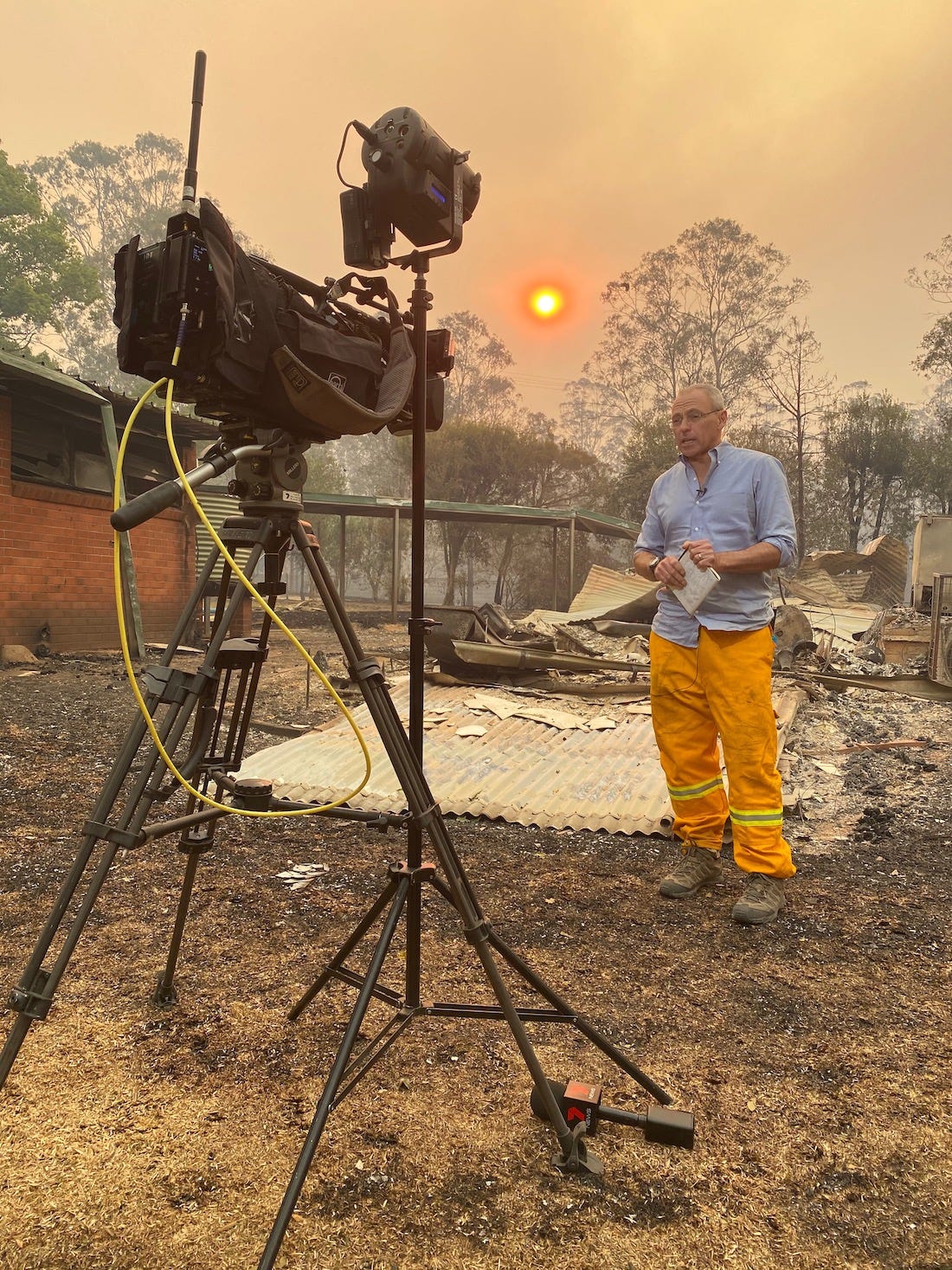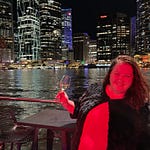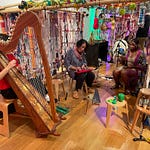
Above: “In Tokyo this year for the One Year To Go celebrations for the Olympics. These will be my 10th games.”
This episode of The Journo Project features one of the great stalwarts of Australian journalism—Walkley Award winning television reporter Chris Reason.
He has travelled the world telling stories, starting his life in journalism delivering papers for the Redland Times in south-east Queensland’s sleepy bayside, before becoming police reporter at the Queensland daily newspaper The Sun.
“That began my journalism career,” he says.
“I jumped around a little bit when I was younger as you should as a young journo and I try and encourage all young journos to do it.
“Because it’s good to get variety, it’s good to move around, it’s good to know the country better. It’s good to know different formats better—television, newspapers, radio and digital.”

Above: “Back in East Timor, for the 20th anniversary of Independence this year. I won a Logie for that coverage, it was great to be back.”
He went on to become the youngest correspondent in Seven Network’s history, when he was posted to London.
“I was so wet behind the ears, it was a great show of faith by them,” he says.
“I went, I did the best I could.
“Foreign corresponding is a place where you really do learn. When you go to a foreign bureau, particularly a place like London, New York, Washington and LA, you see how the rest of the world thinks.”

Above: “In Washington for the Trump inauguration. I spent 3 weeks on the campaign trail with him—and election night in NYC—one of the wildest assignments of my career.”
Chris Reason is now Seven’s Chief Reporter.
“Next year is my 30th year—that’s most of my adult life, the majority of it, and certainly most of my working life,” he says.
“It’s been so good to me for so long.
“A lot of people say to me why do you still do it? I still get a buzz out of it. It’s still fun. It’s a career like no other.
“There are so many jobs and so many of my contemporaries that left school and went into law, into medicine, into private business, whatever, that sit in offices and have a very routine life day to day. I never know what I’m going to be doing tomorrow. I never know what I’m going to be doing this afternoon, tonight. The day can change the whole story assignment can change and so can the assignment and fun.
“I always look to do this in journalism—if there’s something I can pass on as a tip—if the pack is moving one way, look to move the other way.”

Above: “In Hanoi for the Trump-Kim peace talks.”
His television reports are seen all over Australia, covering some of the toughest stories such as the Boxing Day tsunami in Thailand and then Banda Aceh; the Fukushima nuclear disaster; Barack Obama’s election; Nelson Mandela’s funeral; and the September 11 terrorist attacks from on the ground in New York. Most recently Chris has been reporting from the fireground of the bushfires in New South Wales (below).

“I always call it parachute journalism, you fly in, you drop in, you try and make sense of something, you try and engage with people, you’re tapping into possibly the worst moment in their life, you’re trying to tell their story in minimal time, with minimal research, and little background on the ground, but you’re doing it in good faith,” he says.
“You’re doing it the best you can, you’re doing it to try and explain what’s happening on the ground to an audience back here that may not have the time to listen. Might not have the engagement there or interest. The job of the journalist in so many ways is to make the story engaging, to simplify the issues, to bring the power of television which is incomparable when it comes to delivering emotional power.”
In 2015, Chris Reason won the Graham Perkin Award for his coverage of the Lindt Cafe siege, which happened only 30 metres from his newsroom at Seven.
Chris tells us on The Journo Project about the high cost involved for many journos on the front line of such events, and the vital role of the press to keep people informed.
“At the end of the day it is a critically important job. You get there and you need to be able to pull yourself together,” he says.

Above: “In Thailand for the caves rescue—very proud of that coverage. It earned a spot in the Walkleys finals.”
“You need to be able to deliver that information. People are going to make life decisions based on that. Governments are going to make decisions based potentially on the stories that you file whether from here or overseas. The role of the journalism is always critical.”
Chris has faith that journalism has a strong future, despite the current uncertainty surrounding the profession.
“People need information and need stories, about us, about the world around them, about their own community,” he says.
“I am confident the media will survive this onslaught that we’re all being hammered by the moment. The question will be in what form will we tell these stories.”

Upcoming

And lastly, the Journo Project’s last episode of the decade features Sydney Morning Herald journalist and Walkley Award winning author of “The House”—Helen Pitt.
The news doesn’t stop at this time of year and neither does The Journo Project! So sit back and enjoy your Journo Project podcasts, whether you’re laying cruising down the highway in a kombi like me or in a little two door machine, or on the bus on the way into town for the New Year’s Eve fireworks. Wherever you are, you’ve got Australia’s best journos in the palm of your hand and at the end of your headphones through your podcast app or by pressing the podcast link at the top of this email.
Talk soon! See you in the new decade!
Nance













Share this post